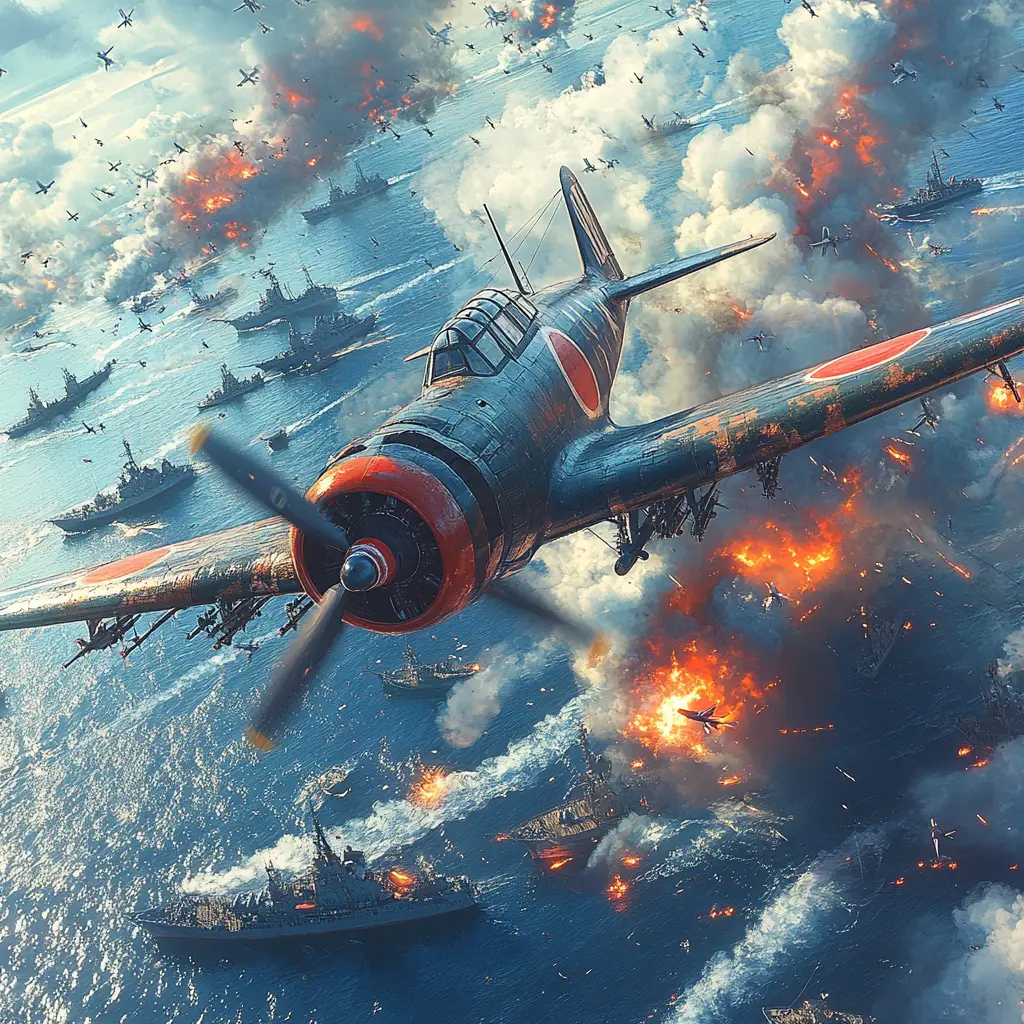Wars are usually won by skill, strategy, and sheer force of will. But sometimes? Victory comes down to a random twist of fate—like a misplaced shoe, an unexpected storm, or a conveniently timed betrayal.
Anything that can go wrong will go wrong. History proves this over and over again, and nowhere is it more evident than in warfare. Some of history’s greatest victories weren’t due to superior tactics but rather sheer dumb luck.
Here, we’ll dive into seven battles where pure dumb luck turned the tide of history. Strap in because these lucky wins will have you questioning if the gods were playing favourites.
1. The Battle of Midway (June 4–7, 1942)

The Battle of Midway was a pivotal naval battle between the United States and the Japanese. Although this battle is not widely popular, it played an important part in shaping the outcome of WW II.
Despite inferior forces, American success hinged on a chain of improbable events. First, U.S. cryptanalysts had partially broken Japan’s naval code (JN-25), revealing plans to attack Midway—a stroke of fortune that allowed Admiral Nimitz to ambush the Japanese fleet.
Even this intelligence breakthrough nearly failed: a last-minute Japanese code change almost obscured their target, but a clever ruse by U.S. forces confirming “Midway” as the objective sealed Japan’s fate.
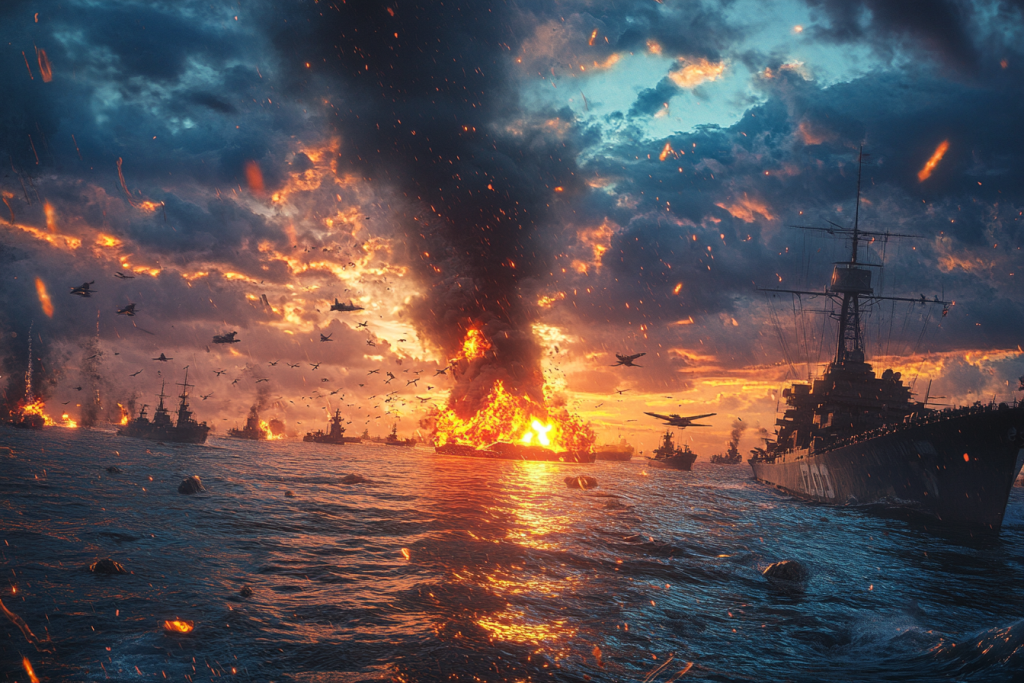
On the battlefield itself, luck proved even more critical. The American and Japanese high command had sent out plans to locate and destroy the enemy. Surprisingly, both strike forces were unable to locate their target.
Luckily, a group of American dive bombers, lost and low on fuel, stumbled upon the Japanese fleet at the exact moment its carriers were most vulnerable—planes refuelling on deck. In minutes, U.S. bombs sank three Japanese plane carriers (Akagi, Kaga, Soryu), a devastating blow fueled by timing so precise it seemed scripted. A fourth carrier (Hiryu) was destroyed later, while the U.S. lost only Yorktown.
2. The Battle of Agincourt: A Muddy Miracle

The Battle of Agincourt was one of the most stunning English victories during the Hundred Years’ War. King Henry V of England matched into France to claim the French throne.
However, things did not go as planned as Henry’s army was ravaged by disease. Forced to retreat, but already deep in French territory, Henry found his path blocked by a numerically superior French army at a small field near Azincourt. Outnumbered and exhausted, the English army faced annihilation.
Yet luck intervened at critical moments.
Days of torrential rain left the battlefield a quagmire, bogging down heavily armoured French knights in mud. This terrain advantage was unplanned but decisive: the English longbowmen, positioned on dry ground, unleashed volleys into the chaotic, immobilized mass.
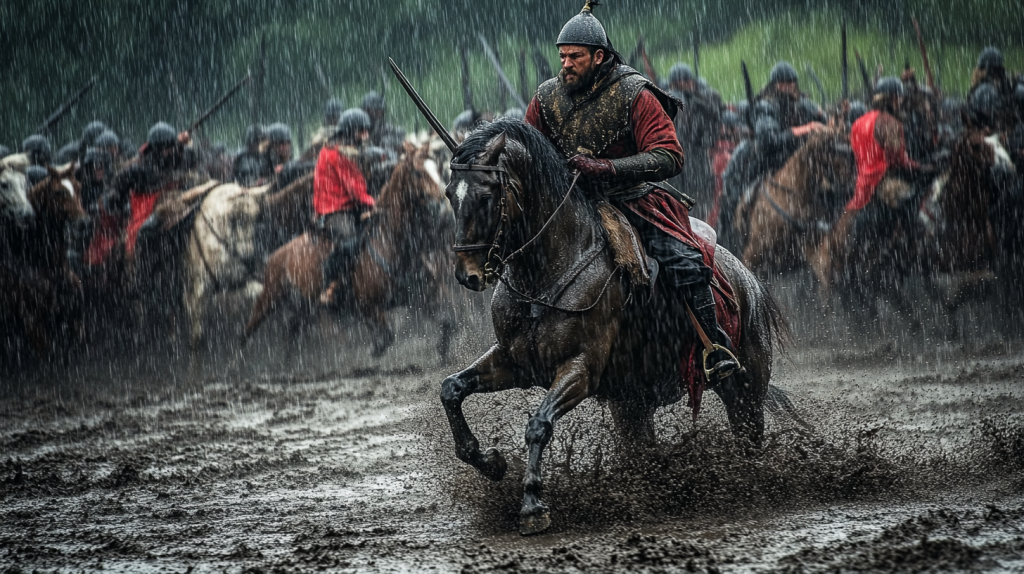
Chance also shaped French decisions. Overconfidence led the French nobility to dismiss their own crossbowmen, opting instead for a disorganized cavalry charge directly into the English killing zone. The narrow field, flanked by woods, funnelled the French into a cramped slaughterhouse where their numbers became a liability.
Even the English army’s desperate state played a role: had the French delayed the battle, dysentery might have crippled Henry’s forces.
The aftermath was grimly fortuitous. Henry, fearing a renewed attack, ordered the massacre of French prisoners—a brutal move that spared his army from counterattack. While English discipline and longbow prowess were key, Agincourt’s outcome hinged on a perfect storm of luck: weather, terrain, and enemy arrogance.
3. The Battle of Brooklyn: The Fog that Saved America
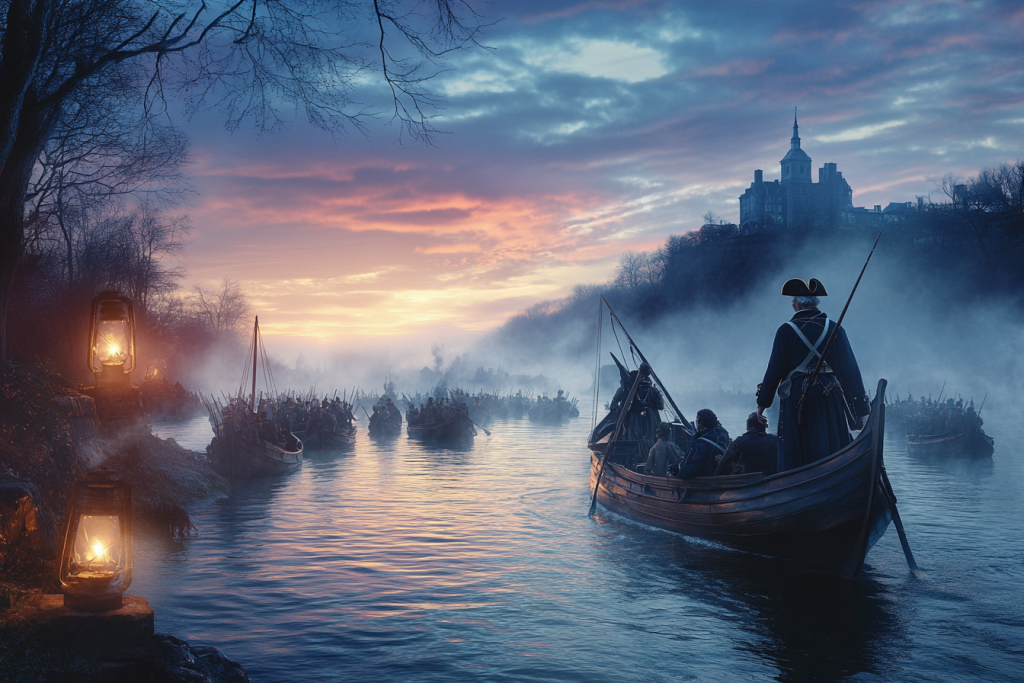
This battle marked the first major clash of the American Revolutionary War after the Declaration of Independence—a near-catastrophe for the Continental Army, salvaged only by a mix of luck, British caution, and George Washington’s audacity.
Outnumbered and outflanked, American forces faced annihilation as British General William Howe landed 32,000 troops on Long Island, encircling Washington’s 10,000 defenders. Yet fortune intervened to avert total disaster.
A critical stroke of luck came during the British advance. Despite routing the Americans and breaching their defences, Howe inexplicably halted his assault, opting to besiege Washington’s entrenched position rather than deliver a final blow. This hesitation—attributed to Howe’s overcautiousness or a desire to minimize casualties—bought the Americans time.
Then, nature intervened: a thick fog rolled over the East River on the night of August 29–30, cloaking Washington’s desperate evacuation. Rowing boats silently ferried 9,000 troops to Manhattan under cover of darkness and mist, a retreat the British Navy, anchored nearby, failed to detect.
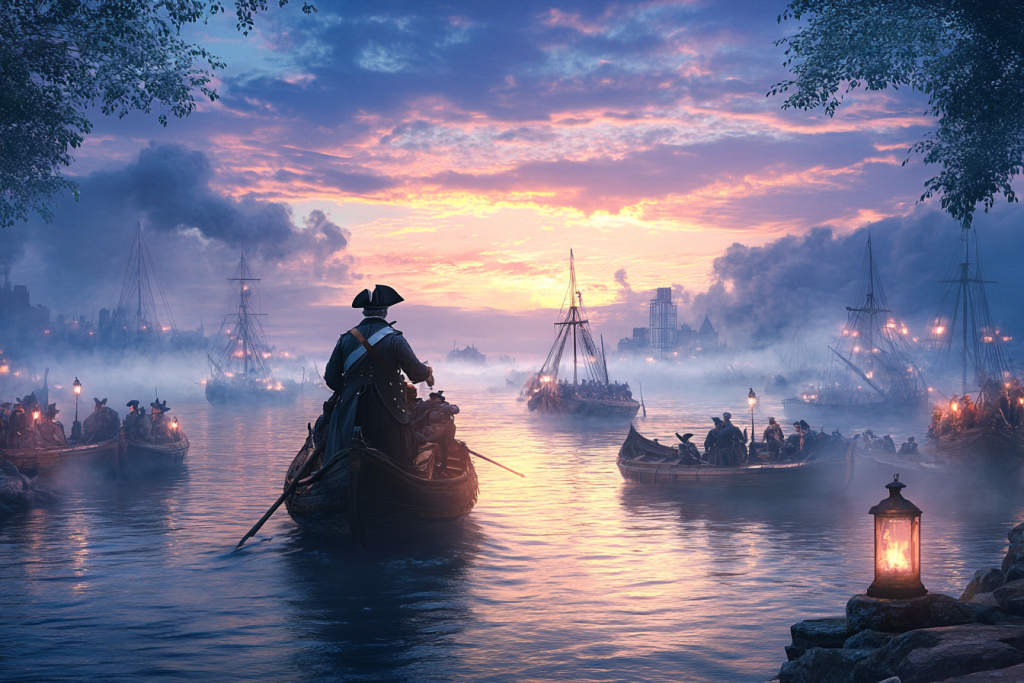
While the battle ended in British victory, the Continental Army’s escape—fueled by fog, enemy hesitation, and sheer grit—proved strategically vital. Without this convergence of luck and resilience, the Revolution might have collapsed in 1776 and the United States of America might not exist today.
4. The Battle of Teutoburg Forest: Rain, Betrayal, and a Very Bad Day for Rome
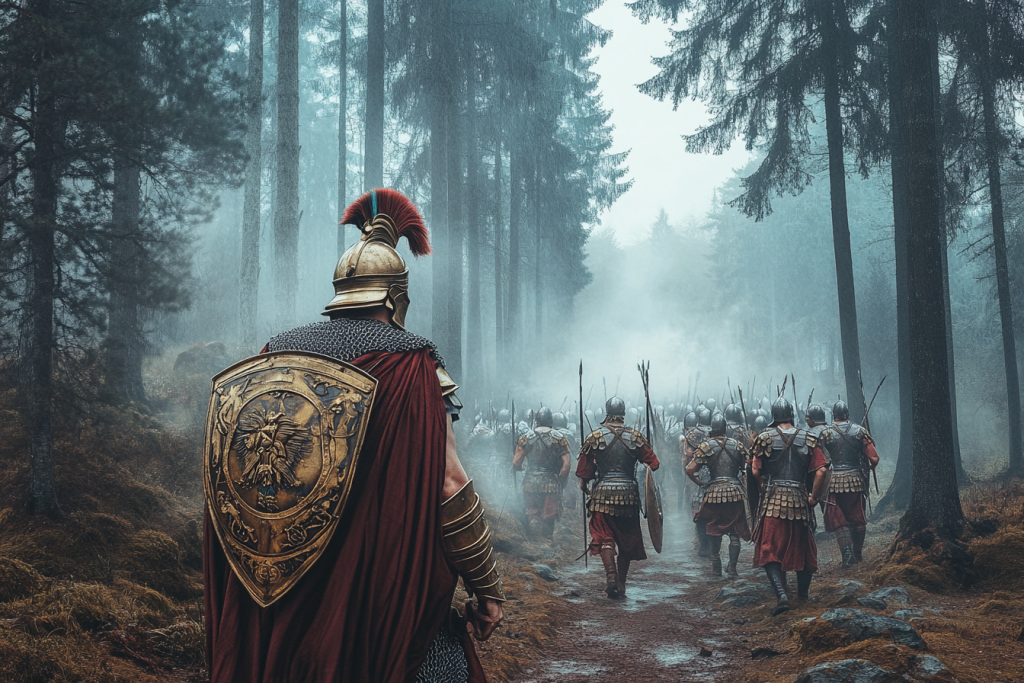
Back in 9 CE, the Roman Empire decided to flex its muscles and teach the Germanic tribes a lesson. General Publius Quinctilius Varus led 15,000 Roman soldiers deep into Germania, trusting their guide, a German-born officer named Arminius.
What Varus didn’t know? Arminius was plotting against him.
At the worst possible moment—deep inside Teutoburg Forest, with limited movement—rain started pouring. The rain bogged down Rome’s disciplined formations and rendered their heavy armour a liability. The downpour also masked the movements of Germanic warriors, who launched relentless hit-and-run attacks from the shadows.
Arminius’s knowledge of Roman tactics and the terrain proved decisive, but fortune amplified his advantage: Varus’s blind trust, the storm’s timing, and the forest’s claustrophobic layout created chaos no Roman drill could counter.

In three days of slaughter, 20,000 Romans perished, their legions erased. The defeat stunned Rome, halting imperial expansion into Germany and cementing the Rhine as Europe’s cultural boundary.
Thanks to a little rain and a lot of betrayals, the Romans suffered one of their worst defeats ever.
5. Kublai Khan vs. Japan: The Kamikaze

Twice, the Mongol emperor Kublai Khan launched catastrophic invasions of Japan to expand his Yuan Dynasty—and twice, typhoons (later mythologized as kamikaze, or “divine winds”) obliterated his fleets, sparing Japan from conquest.
While Mongol military might and ambition were unmatched, luck—and Japanese grit—sealed their fate.
In 1274, Khan’s 30,000-strong force of Mongols, Koreans, and Chinese landed at Hakata Bay, wielding advanced gunpowder weapons and cavalry tactics. The outnumbered samurai reeled, but a sudden typhoon smashed the Mongol fleet, forcing a retreat.
In 1281, the Khan launched an even greater invasion—140,000 troops aboard 4,400 ships—the largest premodern seaborne assault. Yet logistical chaos plagued the fleet. Korean and Chinese ships arrived weeks apart, allowing samurai to harass the divided force.

The Mongols struggled to breach Japan’s defences for two months until another typhoon struck. Ships capsized, drowning thousands. Stranded troops were slaughtered.
The typhoons became a legend, framing Japan’s identity as a “divinely protected” nation.
Read Also:
7 Weird Weapons of war that failed and why
Seven deadliest snippers in Modern history
Final Thoughts: Luck or Fate?
History is filled with battles won by skill, strategy, and brute force. But sometimes? Luck has the final say.
From betrayals and bad weather to misplaced war plans, these battles prove that even the best-laid military strategies can crumble in the face of sheer dumb luck.
So, next time you think history is all about genius generals and perfect tactics, remember: sometimes, all it takes is a little rain, wind, or one very loose-lipped soldier to change everything.
